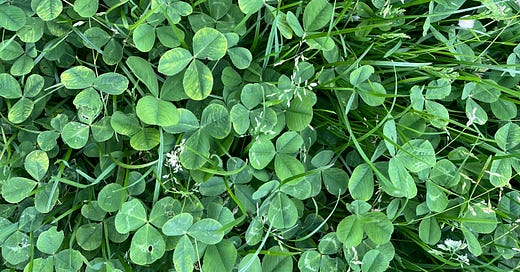At the beginning of the year in Japan we go to shrines and usually pull a “luck lottery” which is how I’m translating omikuji (御神籤). It’s like quick fortune-telling that’s set up as a raffle. There’s quite a lot of superstition attached to things in Japanese culture. You’ve got the inauspicious number four (四) because when spoken out loud it sounds like ‘shi’ the character for ‘death’.
Rokuyō (六曜) is an astrological calendar that gives you good days and bad days – but more than that – it’s like divination about something going well or badly for you based on timing. For example, on a shakku day (赤口) when anger is rising, there’s more likelihood of having arguments, so try and avoid negotiations – unless it’s at noon – a one-hour reprieve of luck. You can look up what rokuyō day it is today on this nifty webtool.
My Obaachan consulted a fortune-teller before my aunt moved in with her to check when the best time would be for a removal van to arrive. Obaachan believes in these things, but my aunt does not, which causes friction I’m sure now that they live together.
Going back to the luck lottery omikuji… at New Year around the shrine precinct there are little windowed booths manned by sacred maidens who are called Miko-san (巫女) – usually high school girls doing part time jobs1 – and decorated around the area are wooden boxes not much larger than a pint glass, which rattle when you shake them, which you’re supposed to do. As you shake the box a numbered stick pokes out of a hole, you pull it, remember your number then go over to one of the Miko-san in a booth who hands over a folded piece of paper with a corresponding number.
Unfold the paper and it will have your fortune written on it. The large kanji symbol at the top will describe your general fortune e.g. Good Luck (大吉) or Bad Luck (凶) and various states in between. Further detailed descriptions are also given such as luck in love, luck in work, luck in studies, and so on. You might even get an archaic poem, which reflects the mood of your luck.
This might sound a bit quantum, but I have this belief that there is a flicker of a moment where the fortune can change before the paper is unfolded. You know, what is not seen is unknown and when seen it crystallises. You know, before unfolding the fortune it could have been anything.
People like to pull these fortunes for fun, they don’t take them too seriously, but I do wonder how long these fortunes last, like is it a snapshot of life at this juncture? Or does it last until next New Year when I pull omikuji? What if I go to another shrine, which I’m likely to do and pull another conflicting fortune, does the most recent one cancel out the older one? Are we mortals forever bouncing between good luck and bad luck states, I wonder.
People unfamiliar with Japanese religions are sometimes unable to grapple with the idea that something like a shrine and the sacred folded paper are considered superfluous and serious at the same time. Omikuji are something to mock-cry to your friends about, ‘Oh no I’m destined to be single, waaaa.’ But people are also like, ‘Let’s err on the side of caution and not arrange grandad’s funeral for that date.’ Religion, belief, luck, superstition, ritual; Shinto stuff sort of circles these things and I truly appreciate it for finding the sacred in the profane.
When I was twelve years old, I returned to Japan after a hiatus of around six years. I’d lost most my language skills, though thankfully it had remained hidden, creeping around the corners of my skull until the language got coaxed out again with much prodding, studying and encouragement. Upon my return to Japan, I was basically a dumb child, and I spent that formative summer holiday with my grandmother Obaachan.
Obaachan who had looked after me when I was a baby while my single mother went out to work. I knew that she was this significant person in my life, but we couldn’t communicate with words at first because of the language barrier. Pangs of sadness and frustration were batted away. I followed her around – presumably, much like I did as a toddler – watching her do the gardening, cooking, shopping. Quickly my pace picked up for re-learning Japanese.
One morning while the pair of us were walking back from our local shrine through the park, Obaachan stooped down and began staring intently at a patch of grassy clover. I paused beside her. Obaachan was looking around the ground with darting eyes. I had no idea what she was doing and she looked so funny, like a boulder that was concentrating.
Like a flash she picked out a stem from the masses and plucked it handing me a four-leaf clover. I was astonished, delighted and amazed. Obaachan shot me this cheeky grin and carried on walking. I followed behind her thinking, ‘This lady has the power to pluck luck. Cool.’ And I wonder whether Obaachan believes in luck because she has the power to make her own luck.
Everyone remembr Hino Rei aka Sailor Mars who is a high-school student and part time Miko-san?





❤️ "Are we mortals forever bouncing between good luck and bad luck states, I wonder." ❤️
What a cool peek into the Japanese traditions and ambiguous views on luck! And I love the image of you following your grandmother around and her plucking the four leaf clover! I share similar ambiguous feelings about luck. There's a lyric by Bright Eyes song that expresses this well:
"She took a small silver wreath and pinned it on to me
She said, "This one will bring you luck"
And I don't know if it's true but I keep it for good luck"